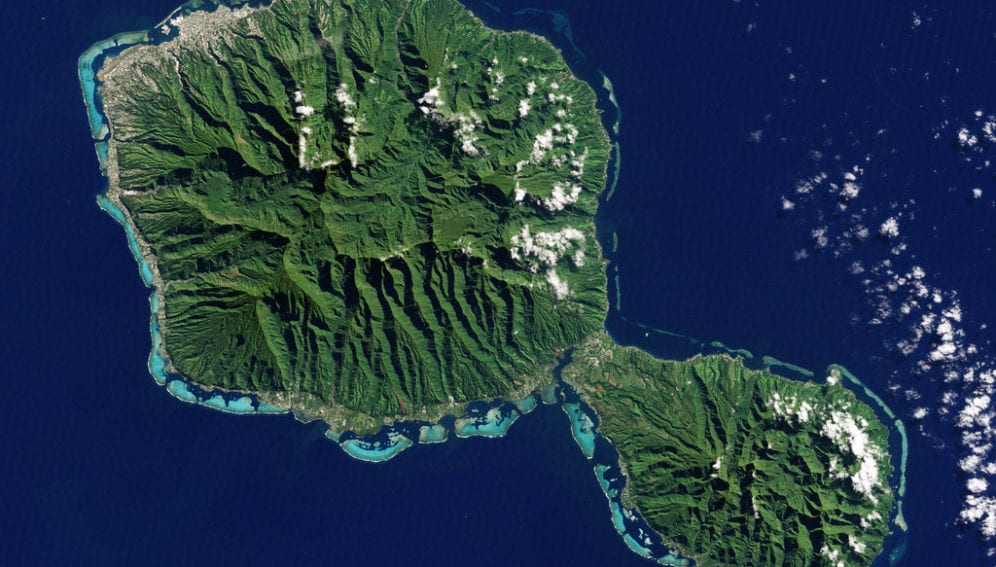Send to a friend
The details you provide on this page will not be used to send unsolicited email, and will not be sold to a 3rd party. See privacy policy.
The benefits of such research informed by local knowledge in French Polynesia include the development of drugs for a foodborne illness that climate change may soon allow to spread to other parts of the world and working to save a local medicinal plant from the brink of extinction.
Indigenous knowledge and practices have benefited from research the IRD has run in the country and have also helped to inform the institute's research and development (R&D) programmes, according to a book released at the Paris meeting last week (3 October).
Fifty Years of Research for Development in French Polynesia (50 ans de recherche pour le développement en Polynésie française) gives an overview of the research the IRD has carried out since its establishment in the archipelago, highlighting the symbiotic relationship between R&D and indigenous knowledge there.
French Polynesia government minister and spokesman Marcel Tuihani said the IRD's diverse research, which ranges from archaeology to marine biology, has helped local communities preserve traditional practices.
"This research has in particular supported our traditional know-how," he told the meeting. "Its value has been to facilitate the transfer of this know-how and, consequently, its reappropriation as part of French Polynesia's heritage."
Over the past 50 years, the institute has carried out 250 research programmes in French Polynesia, working closely with the larger IRD centre in Noumea, New Caledonia.
About 60 per cent of the more than 1,000 research papers published on the Pacific region had an IRD researcher as an author, according to 2011 statistics cited by the institute.
Integrating local knowledge
Many of these research programmes integrate existing knowledge from local communities. For example, the IRD's work on ciguatera — an illness caused by eating reef fish contaminated with algal toxins that results in diarrhoea, vomiting and intoxication — focuses on further developing local medicinal plants to treat the condition.
This research, while based on indigenous knowledge in a regional context, could have far-reaching implications, according to Philippe Lacombe, director of the IRD's centre in Tahiti.
"The impact of research we think of as localised can serve the interest of a much broader population because ciguatera is spreading from the Indian Ocean to Hawaii and, if prediction models are correct, probably into the Mediterranean in the near future," he says.
“There isn't one model of development needed, but rather micro-models, adapted to the characteristics of the islands and their populations.”
Michel Laurent, IRD
The toxin-producing microalgae have already been identified in the Mediterranean, although no cases of intoxication have been reported. The algae's expansion could partly be due to the heating of ocean waters caused by climate change, according to IRD researcher Mélanie Roué.
Another IRD research programme has identified major threats to a Polynesian plant species on the brink of extinction.
Taken to prevent gynaecological infections, tueiao was being used so heavily by local people that IRD research found just 40 specimens in 2010. The institute is working with the local population to establish new cultivations of the plant to ensure its survival.
'Living laboratory' under threat
Mehdi Adjeroud, a coral reef ecology researcher with the IRD, says that this link between local people and scientists makes French Polynesia a "living laboratory practically unique in the world".
"In French Polynesia, we are fortunate to work with communities who are very involved, very interested and who know their local environment very well," he says.
"There is a mutual understanding [with researchers]".
Nonetheless, this development model is under pressure from modern threats to the archipelago's exceptional biodiversity and ancient culture and traditions, IRD president Michel Laurent pointed out.
"These special characteristics are a source of wealth but also fragility in light of the paradigm we now face as societies and as researchers, for example [in the context of] climate change," he says.
"The big challenge in French Polynesia is not just that it's very remote, but also that the population is dispersed across about 100 islands that are difficult to access," he says. "There isn't one model of development needed, but rather micro-models, adapted to the characteristics of the islands and their populations."














